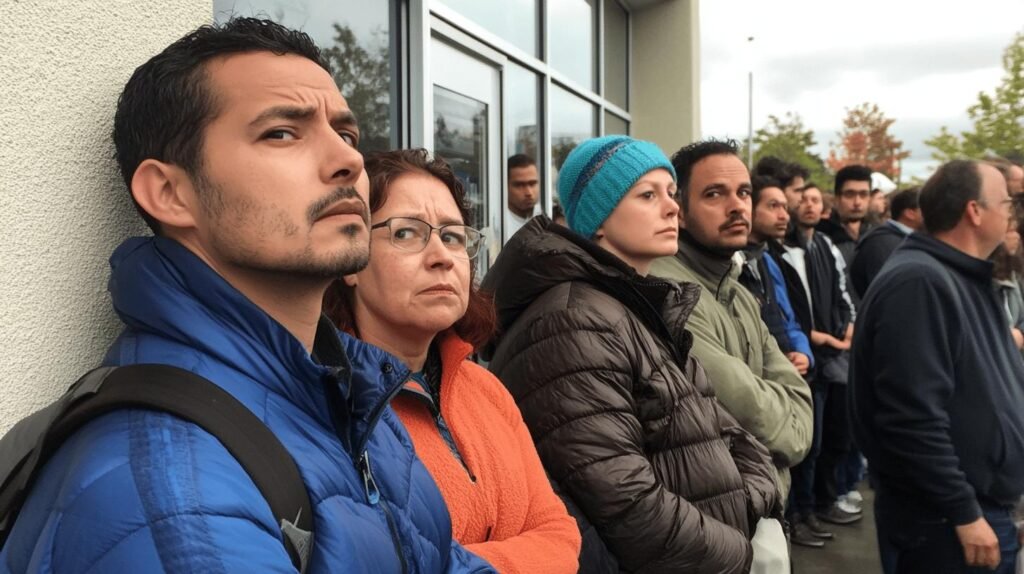TL;DR:
- Healthcare is a human right, as per Article 25 of the Universal Declaration of Human Rights.
- Key principles: Accessibility, Availability, Acceptability, Quality, and Non-discrimination.
- Most developed countries endorse universal healthcare; models vary.
- The U.S. has high costs and lacks universal coverage, with 85 million uninsured/underinsured.
- Ethical healthcare access centres on justice, equality, and resource allocation; governments must ensure fair opportunities.
- Income disparity affects healthcare access, resulting in poorer health outcomes for low-income individuals.
- Solutions include addressing income inequality, expanding healthcare coverage, and investing in community health programs.
Is healthcare access a human right for all, or just a privilege for the lucky few? That’s the burning question we’re tackling today. Healthcare is more than a service—it’s a necessity, like air and water. Yet, the debate rages on. Article 25 of the Universal Declaration of Human Rights shouts it loud and clear: everyone deserves accessible, quality healthcare. But does this really hold true in practice? Get comfy as we explore whether healthcare access truly belongs to everyone or if it’s simply an illusion in our global quest for equality.
Defining Healthcare as a Human Right
Is healthcare access a human right for all? Yes, it definitely is. Article 25 of the Universal Declaration of Human Rights states that healthcare is fundamental for everyone. This article emphasizes that healthcare should be accessible, available, acceptable, and of high quality. The goal is for everyone, without discrimination, to enjoy this right. What does this actually look like?
- Accessibility: Services should be easy to reach.
- Availability: There should be enough healthcare facilities.
- Acceptability: Care must respect medical ethics and be culturally appropriate.
- Quality: The standard of care must be high.
- Non-discrimination: Everyone should receive fair treatment.
These principles aim to ensure that everyone can access necessary care. How does this work in reality? It means that healthcare shouldn’t just be for a fortunate few. Accessibility involves having nearby and affordable clinics. Availability ensures enough doctors for all. Acceptability means care is respectful and culturally sensitive. Quality insists on the best treatments with no compromises. Non-discrimination ensures equal health opportunities for all.
Consider how you can advocate for these principles in your community.
Global Perspectives on Healthcare Access
Is healthcare access a global human right? Yes, it is viewed this way internationally. Most developed countries recognize healthcare as a right and have systems to support that. Many European nations adopt universal healthcare models, ensuring no one fears financial ruin due to healthcare expenses.
In Europe, each country shapes its unique universal healthcare model. Some use fully public-funded systems, while others blend in private options. For instance, the UK’s NHS is tax-funded, while Germany mixes public and private insurers. Despite differences, the core idea remains access for all.
International organizations like the World Health Organization (WHO) champion universal healthcare. WHO defines it as access to necessary health services without financial strain. By promoting this standard, WHO encourages nations to prioritize inclusive healthcare systems.
| Country | Healthcare Model | Accessibility |
|————-|————————–|————————–|
| United Kingdom | National Health Service | Tax-funded, universal |
| Germany | Public-Private Mix | Broad choice and coverage|
| France | National Health Insurance| Universal, public-funded |
| Sweden | Decentralized Public | High accessibility |
Reflect on how these systems compare to your own country’s healthcare. What improvements can be made?
The U.S. Healthcare Debate
Is the U.S. healthcare system costly? Yes, incredibly so. Many Americans struggle due to high healthcare costs, with 85 million uninsured or underinsured. This means many can’t access necessary care when they need it. Unlike other countries, the quality of healthcare doesn’t match the price. It’s like overpaying for a luxury car and receiving a rundown one instead, leading to frustration.
Should healthcare be a right or a privilege? This question fuels debate. Some argue it’s a fundamental right, similar to education—everyone deserves a chance at being healthy. Others see it as a privilege to be earned. This creates a policy-making divide akin to a tug-of-war.
Senator Bernie Sanders proposes a Medicare-for-all single-payer system. He argues healthcare should be a right, covering everyone, eliminating the stress of insurance-driven choices, such as surprise bills or denied treatments.
- High costs
- Lack of universal coverage
- Insurance-driven priorities
- Socioeconomic disparities
Consider how these potential changes could impact you and those around you.
Ethical Considerations in Healthcare Access
Is healthcare access a universal right? Ethically, it is. Healthcare as a human right focuses on justice and equality. The idea is straightforward: everyone deserves access to healthcare without discrimination—like having clean water or air. Healthcare justice means everyone gets the care they need regardless of background or finances. This moral obligation challenges nations to build systems that uphold this right.
- Resource allocation
- Prioritization of care
- Equity
- Government responsibility
- Patient autonomy
- Healthcare professionals’ roles
Nations and societies must address these ethical concerns. It’s not enough to declare healthcare a right; it must be enacted. Tackling issues like resource allocation and care priority during scarcity is essential. Governments must ensure fair health opportunities. Healthcare professionals advocate for patients’ rights and uphold ethical standards. By addressing these challenges, societies move towards just, equitable healthcare. Reflect on how these ethics shape your community’s healthcare.
Socio-Economic Factors Affecting Healthcare Access
Is there a disparity in healthcare access based on income? Yes, absolutely. In the U.S., income greatly affects healthcare access. Lower-income individuals often face barriers to services. Imagine needing a doctor but being unable to afford the visit—that’s a reality for many. Wealthier people tend to have better access to medical care, as they can afford insurance and other costs. This results in poorer health outcomes for low-income groups, perpetuating disadvantage.
Does economic inequality affect health outcomes? Indeed, economic inequality causes differences in life expectancy and health quality. Lower-income individuals often live shorter lives than wealthier ones due to affordability issues for essential resources like healthy food or safe environments.
What can be done to reduce these disparities? Solutions need a multi-faceted approach. Addressing income inequality and improving access to education and healthcare is crucial. Expanding healthcare coverage to include everyone, regardless of income, is essential. Investing in community health programs and infrastructure in underserved areas can make a real difference.
- Income inequality
- Education level
- Employment status
- Regional disparities
- Access to resources
Consider how these socio-economic factors affect your community and what improvements are possible.
Final Words
Exploring healthcare as a human right reveals its global recognition, from the Universal Declaration of Human Rights to Europe’s universal healthcare systems. The U.S. debate underscores the tension between viewing healthcare as a right or privilege, with ethical considerations adding depth to this discussion.
The socio-economic factors driving disparities in healthcare access paint a complex picture, yet they guide us toward necessary reforms. Recognizing healthcare access as a human right remains crucial for achieving equality and justice in healthcare.
Embracing this perspective can pave the way for better health outcomes for all.
FAQ
Is healthcare a human right or a privilege?
Healthcare is considered a human right. International covenants like the Universal Declaration of Human Rights recognize it, emphasizing access for all without discrimination.
Is healthcare a basic human right Argumentative Essay?
Healthcare as a basic human right is a debated topic. Some argue it’s essential for equitable societies, while others see it as a privilege due to varied global access.
What are examples of the Right to health?
Examples include universal healthcare systems in countries like the UK and Canada, where health services are accessible, available, acceptable, of high quality, and non-discriminatory.
What is a Health as a Human Right essay?
An essay on this topic would explore why healthcare should be accessible for everyone, discussing ethical, legal, and societal implications, often referencing international human rights guidelines.
What is the Right to health as a fundamental right?
The right to health means everyone should have access to health services without suffering financial hardship, grounded in dignity, equality, and non-discrimination principles.
Is access to healthcare a civil right?
Access to healthcare can be seen as a civil right because it’s integral to equality and justice within a society, ensuring everyone has the same opportunity to live healthy lives.
Is access to healthcare in the Constitution?
Although the U.S. Constitution doesn’t explicitly mention healthcare as a right, debates continue on how to ensure equitable access through legislative measures.
Is healthcare a human right poll?
Polls on whether healthcare is a human right vary, reflecting diverse opinions. Many Americans support healthcare reform to make access more equitable and fair.

